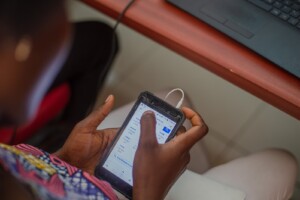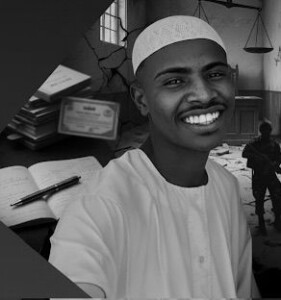Sudan’s restrictive media laws to be reviewed
Sudan’s Minister of Information, Culture, and Tourism, Feisal Mohamed Saleh, has announced that the ministry is to start reviewing media legislation with the Faculty of Law of the University of Khartoum. He described a report in which UNESCO urged developing a roadmap for media reform in Sudan, as comprehensive.
 the forum Developing a Sudanese Media Reform Roadmap in Khartoum (Social media)
the forum Developing a Sudanese Media Reform Roadmap in Khartoum (Social media)
Sudan’s Minister of Information, Culture, and Tourism, Feisal Mohamed Saleh, has announced that the ministry is to start reviewing media legislation with the Faculty of Law of the University of Khartoum. He described a report in which UNESCO urged developing a roadmap for media reform in Sudan, as comprehensive.
Speaking at the closing ceremony of the forum Developing a Sudanese Media Reform Roadmap in Khartoum, Saleh said that the ministry is moving towards liberalisation of the media by giving space to private media, and removing legislative restrictions so that media outlets can multiply.
“We want to give the media a great deal of independence. They can be owned by the state and by society,” he explained.
The legislation includes the Press and Publications Law, the Public Authority for Radio and Television Law, the Right to Information Law, the Radio Broadcasting Law, as well as the Information and Cybercrime Law.
A joint project with USAID will start to survey media institutions and determine training needs to develop a national plan for training in 18 states. At a later stage, a media reform body will be established.
The dean of the Sudanese press, Mahjoub Mohamed Saleh, lauded the UNESCO proposal to establish a commission for the reform of the media and informatics, to review all laws and structures that govern the work of the media in all its means in Sudan.

UNESCO proposed forming a Media and Informatics Reform Commission to review all laws and structures that govern the work of the media in Sudan by all its means, provided that this commission is composed of experts in the fields of media and law, journalists working in various media outlets and academics with experience – and the commission will be (temporary) so that it ends its presence in the fulfilment of its legislative tasks by preparing organizational laws, preparing structures, and then the proposed bodies carrying out their duties.
Mahjoub Saleh, who also spoke at the closing ceremony, called for the abolition of the Ministry of Information saying that this commission should replace it, and not be part of the executive body, but rather be an “independent body”, under the supervision of the parliament that will be responsible, review its performance, and hold it accountable.
The founder of the renowned El Ayam newspaper explained that it has been proven by experience, since independence until today, that “democratic party systems deal with the media in a partisan view”, and that “official media institutions are leveraged for the benefit of their parties, to advertise the activities of the ruling parties, and do not seek to involve everyone in media activity or to expand the circle of media awareness.
“Whether or not the ministry accepts my proposal, I advise that the commission be formed immediately and move in the legislative and regulatory work while the debate continues about the possibility of abolishing or remaining the Ministry of Information,” he stated.
Radio Dabanga’s editorial independence means that we can continue to provide factual updates about political developments to Sudanese and international actors, educate people about how to avoid outbreaks of infectious diseases, and provide a window to the world for those in all corners of Sudan. Support Radio Dabanga for as little as €2.50, the equivalent of a cup of coffee.












 and then
and then